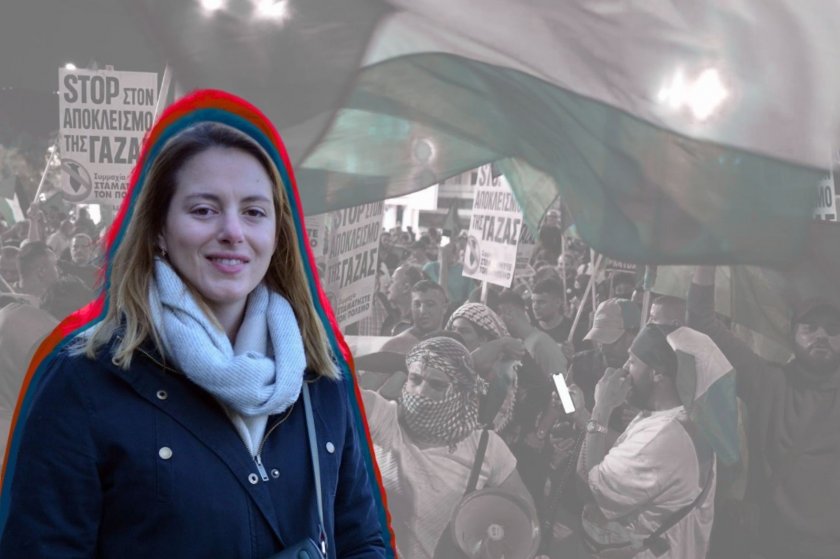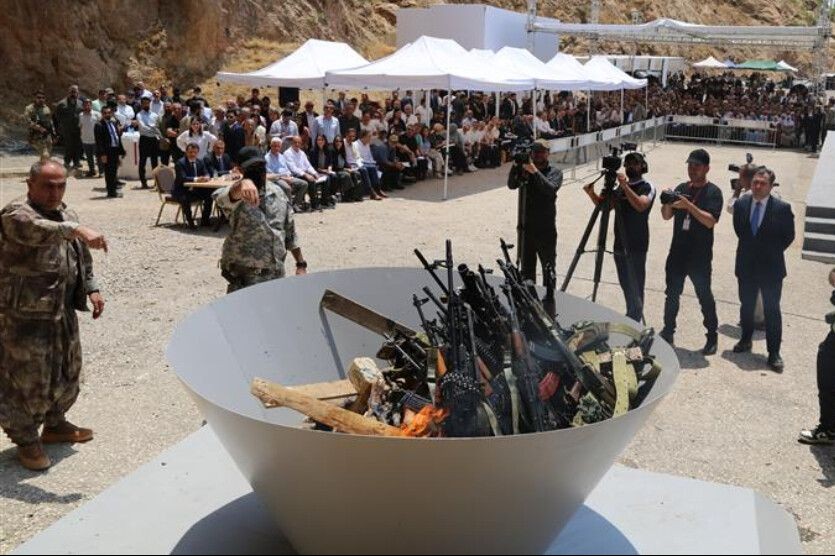Both the Erdoğan, parliamentary majority and the AKP provincial municipalities are now 'lame ducks'

İhsan Çaralan

Fotoğraf: AA
The Istanbul elections produced a result that notions we have grown accustomed to struggle to explain. The people of Istanbul dealt a severe punishment to those who mocked the people’s intelligence and conscience by saying, “Now is not the time to give a lesson. Just vote for us on 23 June and if need be we’ll repent and beg forgiveness. Otherwise the bogeyman will get you!”
Another feature of the Istanbul election was the election officially being in Istanbul but events as the election progressed embroiling 81 provinces in this election. Hence, the 23 June election has painted a picture that warrants interpretation as a Turkey election over and above an “Istanbul election.”
THE AKP MUNICIPALITIES ELECTED ON 31 MARCH ARE “LAME DUCKS”
The first noticeable thing in this picture is the absence of a single sub-province where the AKP, which has governed Istanbul for 25 years, increased its vote. On the contrary, İmamoğlu (the CHP) increased his/its vote in all sub-provinces.
İmamoğlu won 28 of Istanbul’s 39 sub-provinces. That is, had elections also been held for sub-provincial municipalities on 23 June, the AKP and MHP would have lost 28 municipalities. The inclusion among these sub-provinces of sub-provinces such as Fatih, Eyüpsultan, Üsküdar, Bayrampaşa and Zeytinburnu that are synonymous with the AKP suffice to demonstrate the scale of the hefty blow the people dealt.
When İmamoğlu won the 31 March election by a majority of 13,759, Erdoğan described this victory as amounting to having “lame duck” status. Saying, “We won 25 municipalities and we have a majority of 50 on the Istanbul Metropolitan Municipal Assembly,” he openly announced his intention to stymie İmamoğlu’s efforts. Now, taking into consideration the 23 June election results and the advancement in the popular consciousness that events in this process have engendered, it clearly appears to be the AKP-MHP alliance that has basically acquired “lame duck” status because it is apparent that with the distribution of votes on 23 June the AKP-MHP alliance has both fallen into a minority on 28 sub-provincial municipalities and has regressed to a level amounting to a minority on the Istanbul Metropolitan Municipal Assembly.
I mean, what has basically acquired “lame duck” status is the AKP-MHP “majority” on the municipalities held by the People’s Alliance in Istanbul and on the Istanbul Metropolitan Municipal Assembly.
THE ISTANBUL ELECTION IS NOT JUST AN ISTANBUL ELECTION
Saying as the local election headed the agenda in the political realm, “Whoever captures Istanbul captures Turkey,” Erdoğan was both aiming to legitimize other losses as he took Istanbul and was pointing to the importance of taking Istanbul.
As to Bahçeli, he pretty much foresaw the here and now in saying, “If the People’s Alliance loses Ankara and Istanbul, the presidential system and the results of the 16 April referendum and the 24 June election will be opened up for debate!”
The picture the 23 June election has painted in Istanbul has shown that both Erdoğan’s fear and Bahçeli’s “augury” will come to pass because both Erdoğan and Bahçeli, in portraying the local election as a general election with recourse to the “issue of survival,” also represented the Istanbul election as the election of Turkey.
Indeed, all prior elections have showed that whoever wins the local election in Istanbul goes on to be the winner in the next general election.
Given that Istanbul accounts for 20% of Turkey’s population and 45% of its economy and its decisive importance in politics, social life and the cultural and the artistic spheres, it is beyond dispute that the Istanbul election cannot confine itself to being an Istanbul election but, on the contrary, will open the door to important and new developments in Turkey’s political life.
RUMBLINGS OF AN EARLY ELECTION WILL INTENSIFY
So, the changing picture presented by Istanbul since the 16 April referendum shows that the popular will in the 24 June election has now undergone serious change and, thus, under conditions in which democratic norms apply to a degree, a situation has presented itself in which the “electorate is recalling the elected.”
This is because when the omens from the Istanbul election are added to the People’s Alliance’s loss of the important large cities on 31 March, it becomes abundantly clear that:
Support for Erdoğan, who was elected president on 24 June, has fallen rapidly, and
The distribution of power underpinning the parliament that was elected on 24 June has changed to a degree that calls for a fresh election.
This has brought onto the agenda the need for both the presidential and parliamentary election to be rerun by way of an “early election.” And, considering the harsh conditions Turkey is passing through from the economy to foreign policy and democratization to the peaceful solution of the Kurdish problem, it will become ever more apparent that it is impossible to get anywhere with a president and parliamentary majority that have lost their support among the people.
Even if Bahçeli and Kılıçdaroğlu, speaking after İmamoğlu’s victory, have spoken of not wishing for an early election, we know from previous elections that election night pronouncements have no real-life counterpart. It will thus not be erroneous to say that the course of events moving forward will witness intensifying debate about an early election and the raising once more of discussion about the “presidential system.”
(Translated by Tim Drayton)
{{381789}}
Forwarding to the next article...
10 seconds remaining





Follow Evrensel